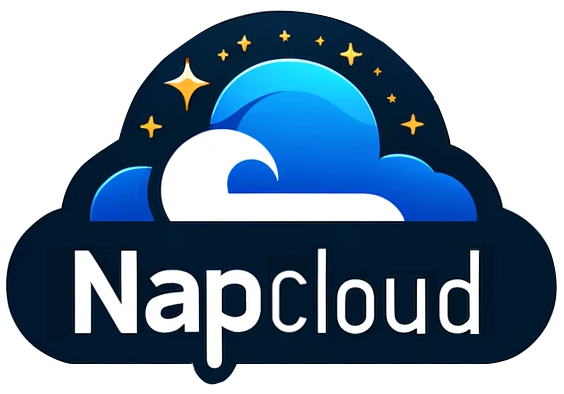
From Stethoscopes to Security: How Healthcare Professionals Can Pivot to Cybersecurity
In today’s digital world, the lines between industries are increasingly blurred. Nowhere is this more evident than in the rising number of healthcare professionals making the leap into cybersecurity. Whether you’re a nurse, medical technician, administrator, or clinician, your unique perspective and skills are more relevant than ever in the fight against cyber threats—especially in healthcare environments.
If you’re considering this transition, you’re not alone—and you’re not starting from scratch.
Why Cybersecurity? Why Now?
Healthcare has become one of the top targets for cybercriminals. Patient data is valuable, systems are complex, and compliance requirements are strict. The industry needs professionals who understand both the front-line challenges of patient care and the back-end requirements of data protection.
Cybersecurity isn’t just about firewalls and encryption; it’s about risk management, patient safety, ethical responsibility, and system resilience—all areas healthcare workers know well.
Transferable Skills: You’re More Prepared Than You Think
Let’s highlight some core skills you already have that translate seamlessly into cybersecurity roles:
1. Attention to Detail
In both healthcare and cybersecurity, missing a small detail can lead to big consequences. Whether it’s reviewing a patient chart or analyzing a security log, your diligence is a strength.
2. Critical Thinking and Problem-Solving
Diagnosing symptoms and determining treatment plans requires a similar mindset to threat hunting or security incident response. You’re used to thinking on your feet and weighing risks.
3. Understanding of Compliance and Regulations
HIPAA, HITECH, and other privacy laws are familiar to you. This knowledge makes it easier to understand broader frameworks like NIST, HITRUST, and SOC 2.
4. Communication Skills
You’ve explained complex information to patients, families, and colleagues. In cybersecurity, explaining risks to non-technical stakeholders is just as critical.
5. Ethics and Confidentiality
Cybersecurity is rooted in trust, just like healthcare. Your sense of ethical responsibility and confidentiality aligns perfectly with protecting sensitive data.
Pathways to Pivot: How to Make the Transition
There’s no single path, but here’s a practical framework:
1. Choose Your Cybersecurity Focus
Cybersecurity is broad. Popular entry points for healthcare professionals include:
- Compliance & Risk Management
- Governance, Risk, and Compliance (GRC)
- Healthcare IT Security
- Incident Response & Digital Forensics
- Security Awareness Training & Education
2. Get the Right Certifications
Start with foundational, vendor-neutral certifications. CompTIA Security+ – Great for general understanding
- HCISPP (by ISC²) – Tailored for healthcare security
- Certified in Cybersecurity (ISC²) – Entry-level, respected
- CISA or CISM – If you lean toward audits and risk
3. Take Cybersecurity Courses
Explore platforms like: Coursera (e.g., Google Cybersecurity Certificate), TryHackMe (hands-on labs), Cybrary, Udemy
4. Take Cybersecurity Courses
Join communities like: ISACA Healthcare SIG, (ISC)² Chapters, LinkedIn Groups for Healthcare IT & Cybersecurity. Start engaging with content, commenting on posts, and building visibility.
5. Apply for Transitional Roles
- Look for positions like:
- Privacy Analyst
- Security Awareness Officer
- Compliance Analyst
- Cyber Risk Consultant
Many of these value healthcare background combined with entry-level cyber knowledge.
- The Mindset Shift: From Caregiver to Defender
One of the biggest changes you’ll face is mindset. Here’s how to mentally prepare:
- Think Preventive, Not Just Reactive
In healthcare, you often treat what’s already wrong. In cybersecurity, your job is to prevent damage before it happens. You’ll learn to spot patterns, anticipate threats, and implement controls proactively.
- Embrace Lifelong Learning
Cybersecurity evolves quickly. Just like continuing education is required in healthcare, you’ll need to commit to upskilling and staying current.
- Build Confidence in Your Story
Your healthcare background is not a disadvantage—it’s a powerful differentiator. Learn how to tell your story to employers in a way that highlights your unique edge.
Final Words: Your Experience is Your Advantage
Healthcare workers are uniquely positioned to enter the cybersecurity space, especially within healthcare security teams that need people who understand the stakes. As hospitals and clinics digitize, and as telemedicine and IoT devices become standard, your insight into patient care environments is gold.
Cybersecurity needs people who care. It needs people who understand stress, confidentiality, urgency, and precision.
That sounds a lot like you.

No Comments